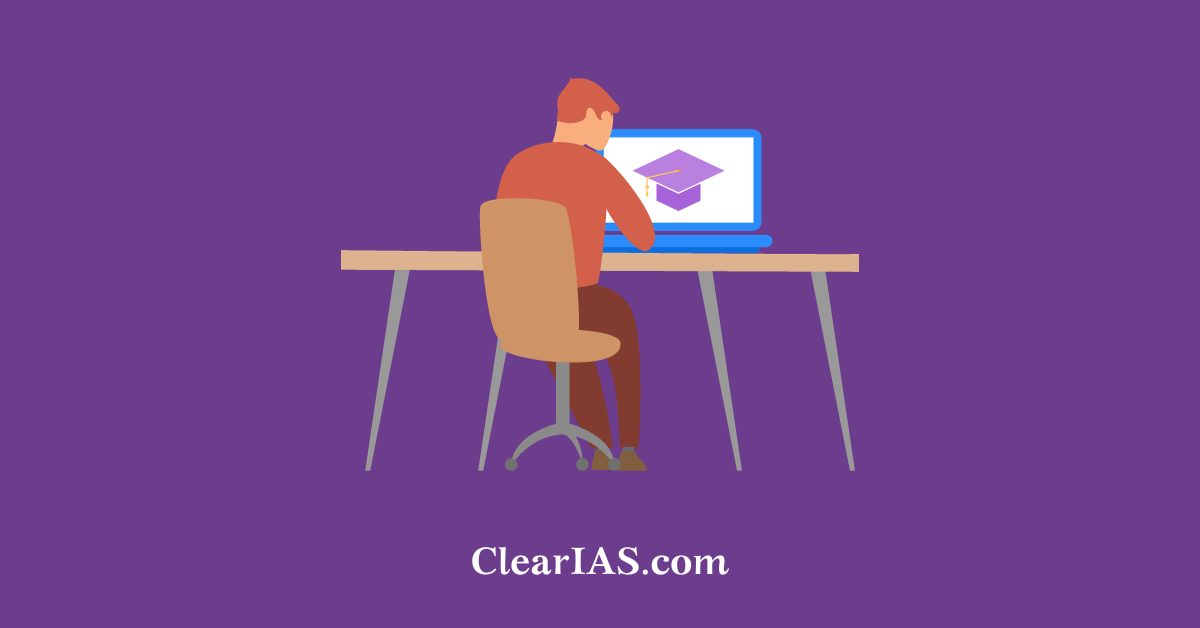 Hailing from a remote village in Malappuram District of Kerala, Muhammad Junaid’s schooling was entirely on his mother tongue – Malayalam. His parents couldn’t study beyond school levels. However, they wanted their son to be the best student in every class. Same was the desire of his teachers.
Hailing from a remote village in Malappuram District of Kerala, Muhammad Junaid’s schooling was entirely on his mother tongue – Malayalam. His parents couldn’t study beyond school levels. However, they wanted their son to be the best student in every class. Same was the desire of his teachers.
While many kept complaining about the lack of facilities, Junaid took his background as a motivation. He attempted the prestigious UPSC Civil Services Exam – in the English Language – and cleared it with flying colours. Yes, he became the first IAS officer from his village. What a pride moment!
Let’s know more about the strategies of Muhammad Junaid – directly from him!
Brief Bio-data:
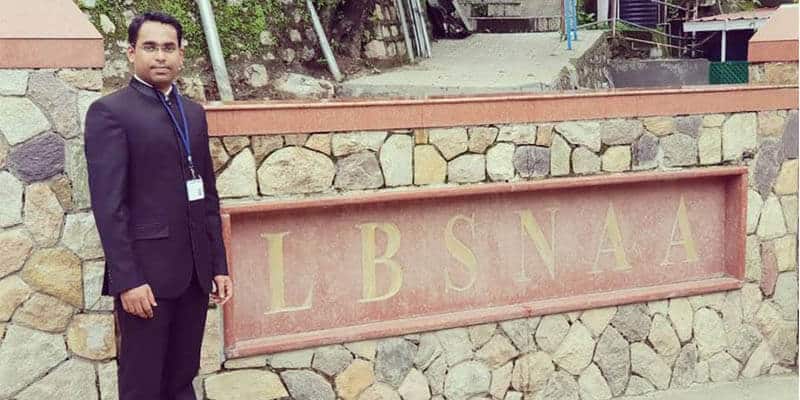
- Name: MUHAMMAD JUNAID PP
- Age: 26
- Name of the Exam and Year: CSE 2017
- Rank: 200
- Roll number: 0365004
- Category (General/OBC/SC/ST): OBC
- Graduation Background and College: B. TECH (ECE), College of Engineering Trivandrum (2009-13)
- Post Graduation Background and College (if any): NA
- Work Experience: Organization and Duration (if any): IBM, 2 years
- UPSC Optional Subject: History
- UPSC Mains Medium: English
- UPSC Interview Medium: English
- The number of attempts taken to achieve this feat: 3
- Performance in previous attempts (if any): 2015: didn’t clear prelims, 2016: failed in mains.
- State and Place of Residence (Permanent): Malappuram District, Kerala
- Percentage of Marks in 10th and Board: 95%, Kerala State Board
- Percentage of Marks in 12th and Board: 97%, Kerala State Board
- Percentage of Marks in Graduation and Board/University: 76%, University of Kerala
- Extra qualifications or achievements (if any): After finishing college, we six friends did a project to revive the traditional handloom industry in Kerala. This study was an eye-opener for me and strengthened my desire to become an IAS officer.
- What’s unique about your profile: Coming from a remote village, I studied in public schools with Malayalam medium. Parents could not study beyond school levels. Financial conditions at home were very difficult. No one ever dreamt about IAS in my extended family. There was not even a single government employee in my whole family when we studied in school.
- Service Preference (Top 5): IAS, IPS, IFS, IRS (IT), IRS (C&CE)
- Cadre Preference (Top 5): Kerala, Maharashtra, Rajasthan, Odisha, Assam-Meghalaya
Background + Inspirational Journey So Far:
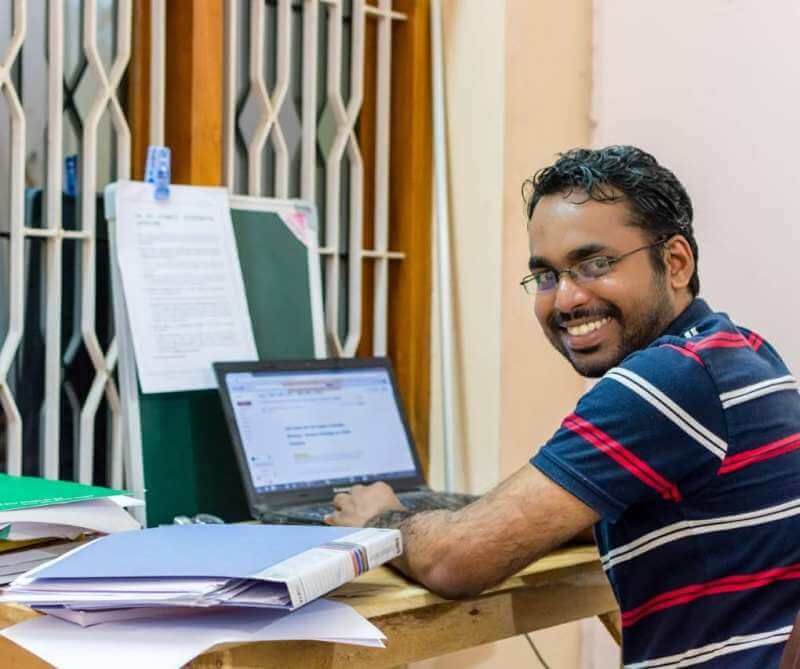
ClearIAS.com: Hearty congratulations from ClearIAS.com for this exceptional achievement! We are happy that your efforts are finally rewarded, that too in grand style! Let’s start from the beginning. How did you come across the idea of writing UPSC Civil Services Examination? Was it your childhood dream?
Though my parents couldn’t study beyond school levels, they wanted me to perform better and be the best student in every class. Despite the limited facilities, they encouraged me to study and read more. Due to this support, I was always among the school toppers. My teachers always used to motivate me too. Besides, I used to participate in extracurricular activities like quizzes, essay writing etc and used to get prizes. Thus my teachers wanted me to achieve much more and they even expressed their hopes that one day I might become the first IAS officer from our locality.
This was how the idea was planted. Later I began to think about it seriously and began to follow the news about civil servants and the civil service examination. Then I understood that it is indeed a life worth living. I know what poverty is and what it does to the underprivileged in terms of poor quality of life since I grew up in such difficult conditions. A developed India where everyone is having access to a minimum standard of living has been my dream and I decided that best way to contribute my part will be to become an IAS officer.
ClearIAS.com: How did you feel when you came to know that your name is in the toppers list? Can you share the moments of happiness with our readers?
It was a moment of great joy and immense happiness.
[click_to_tweet tweet=”I was reading the list sitting alone in my room, and as soon as I saw my name, I ran out and told my mom and sisters that we had done it! They all broke down and so did I.” quote=”I was reading the list sitting alone in my room, and as soon as I saw my name, I ran out and told my mom and sisters that we had done it! They all broke down and so did I.” theme=”style2″]
Frankly, I can’t express the full feelings in words. Everyone should experience that kind of euphoria themselves at least once in life when they realize that their dream has come true. I thank God almighty for all his blessings.
ClearIAS.com: Can you share a little bit about your background? (Family, School, College, Work etc.)
As I’ve indicated earlier, I come from a village called Venkulam in Malappuram district. My family is basically an agricultural cum religious household. My father, after a stint in the Gulf, is now working as a Madrassa teacher in the locality. My mother is a housewife. I’ve three younger sisters who all are students.
I attended the following public schools (Malayalam medium), all near my locality: GMLP school (I to IV), PMSAM UP School (V to VII), MUHS (VII to X) and PKMM HSS (XI, XII). In all classes, thanks to the consistent encouragement given by my parents and grandparents, I was the school topper in studies. Thus my teachers also had great expectations from me and they supported me very much.
In 2009, I finished class XII with 580/600 marks and secured 480th rank in Kerala Engineering Entrance Examination. Thus I got admission in College of Engineering Trivandrum, for B. Tech in Electronics and Communication Engineering. I was a below average student in College as I had lost interest in engineering very soon. However, the college life gave me great exposure to all walks of life and it has helped immensely to develop my personality. I’m grateful to my teachers, especially Ms Sumam Jacob for the support they have given me even after I left college.
After college, some of my friends wanted to do something socially important and I joined them. We did a project to revive the handloom industry of Kerala with the help of Department of Industries, Government of Kerala. This was again a great experience and I learned the importance of welfare-oriented good governance in the life of common people. I thank my friends Raqib, Ashik, Syam, Shehaz and Anto for not only this period but also the role they have played in developing my personality.
After this, for two years I worked in IBM in Bengaluru, as Associate System Engineer. My sole intention was to save money for full-time civil service preparation, but the two-year stint in IBM changed me a lot. It helped me to develop communication skills and leadership qualities. I wrote 2015 prelims, but couldn’t qualify. I resigned from IBM in 2015 December and started preparing full time in 2016 January.
ClearIAS.com: How can you correlate your graduation background, work experience (if any) and entry into civil services? Can you brief us your thoughts, views, and ambitions when you climbed each position in the ladder of your life?
The graduation in engineering has helped me a lot in clearing the exam.
Firstly, the awareness about science and technology helped to tackle many mains and prelims questions.
But more importantly, the course helped me to improve my thinking, way of organising, to find out solutions to problems etc. I faced many difficulties when I was in college, but I developed a “Never Give Up” attitude.
I think I was able to cover the syllabus of mains in a better way due to this experience.
The handloom project work experience was a deciding factor. It motivated me to enter civil service, no matter what. I witnessed how the abject living conditions of poor people are directly correlated to weak governance. I faced a lot of question in the interview in this regard and I was able to answer them quite well (I scored 198 in the interview)
The work experience at IBM helped me a lot in improving my English language skills. My frequent team meetings, calls with on-site members etc made me confident to talk fluently.
Moreover, in IBM, I had a chance to work in and read more about the latest technologies like Cloud, Big data, AI etc. In the interview, many questions were asked from IBM as well.
ClearIAS.com: Do you feel that the competition level of UPSC Civil Services Exam is on a rise? It seems that there is an increasing trend of candidates from IITs, IIMs and AIIMS attempting and clearing this exam. Is Civil Service the final destination /ambition of Indian youth, in this age of lucrative private sector jobs?
Definitely, the competition is on the rise. I think the civil service is quite unique and it will always be a destination for the bright minds of the country. The charm of civil service is still alive and no private sector job can be compared to the prestige IAS gives.
[click_to_tweet tweet=”You don’t need to go to top colleges to become an IAS officer.” quote=”Having said that, you don’t need to go to top colleges to become an IAS officer. I know few people personally, who couldn’t even go to a regular college, but still made it into IAS with grit and determination.” theme=”style2″]
Finally, it all depends upon our life goals and attitude towards serving the society, that makes one successful in the long run.
Study Plan
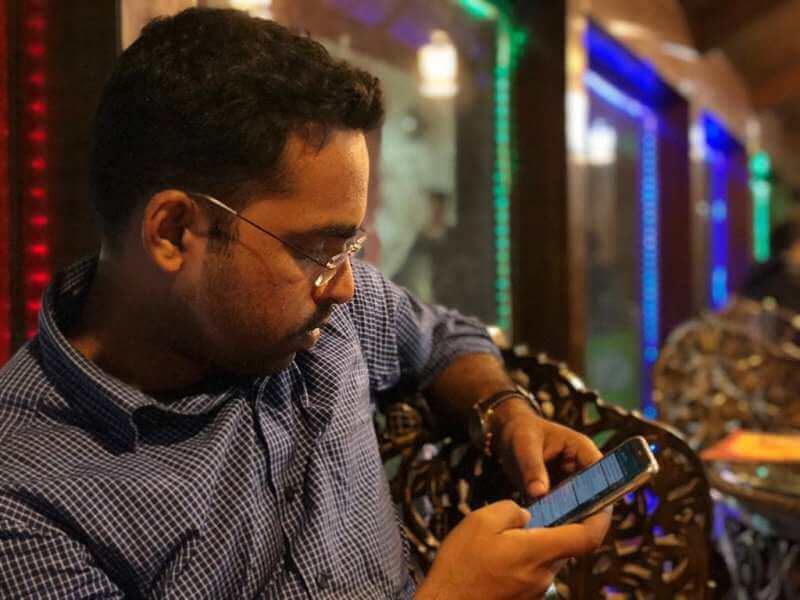
ClearIAS.com: What is the secret of your success? How did you approach this exam? What was your strategy in general (Prelims, Mains, and Interview)?
Having read about many previous year’s toppers, I realized that anyone can clear this exam, provided they put enough hard work to compete with others.
When I read the syllabus and past question papers, I understood that the questions are not complex, but they do cover a wide array of topics. So covering much more areas in the least possible time was required.
So I broke down the big syllabus into smaller and smaller components and conquered each small part quickly. As they say, “many drops make an ocean”.
My strategy, in general, was to prepare for each stage thoroughly by referring to the previous question papers and practice a maximum number of times before going to the actual test. I practised about 50 mock tests for prelims, wrote about 20 tests for mains and attended 10 mock interviews for personality test.
My secret of success is the self-confidence, bolstered by the wishes and prayers of my dear and near ones. They believed in me, so it was easy for me to remain motivated until the end.
ClearIAS.com: How long (Years/Months) have you been preparing before you gave this attempt? Also, on an average how many hours did you put on a daily basis? How did you manage time?
I read basic books and attempted 2015 prelims, but could not clear. (Score 86, cut off 106 something)
I began full-time preparation in 2016 January, after resigning job. I joined Kerala Samajam Academy in Bengaluru. That year I cleared prelims with a comfortable score but I failed in Mains (Score: 741, OBC cut off 745)
I didn’t have any fixed day to day schedule. Generally, I woke up by 4 am. My motto was “whatever time is left after finishing daily routines, invest it in studies”. Generally, I slept by 10.
ClearIAS.com: Were you a person who studied alone? Or a person who favoured the combined study approach?
I did both. In the initial days of preparation, we were a group of four (Nikhil, Sruthi and Praveen). We set daily targets and studied alone. Then we met twice in a week or so and discussed the completed portions. Here I want to thank my dear friends Sruthi, Nikhil, Devanathan IRS (our mentor) and Praveen for their immense help in my success.
In my opinion, Group discussions are very much helpful. It provides us with the viewpoints of others on any issue and broadens our thinking. Smaller, cohesive groups will be more effective.
ClearIAS.com: Did you attend any coaching institute or subscribe to mock tests for prelims or mains? If yes, can you provide the details for each stage (Prelims/Mains/Interview)? How helpful were the coaching institutes?
In 2015, I subscribed to Byju’s classes at Bangalore, and I was really frustrated with the experience. Their prelims tests were so complex and not at all helpful in actual prelims.
In 2016, I attended classes at Kerala Samajam Academy in Bengaluru. That year, I subscribed to Insightsonindia prelims test series too. These two were very helpful in clearing prelims that year with a good score (132 in paper 1) I want to thank my mentor Sri Gopakumar IRS for guiding me at Kerala Samajam.
For 2017 Mains, I attended the test series of the iLearn academy at Trivandrum. It gave me ample practice before writing actual mains.
For Interview, I attended about 10 model interviews in various institutes. Some were really helpful and some were not.
[click_to_tweet tweet=”In short, coaching institutes are helpful if we can find a good, personal mentor there. In any case, the hard work is all ours. Coaching institutes can only play a limited role.” quote=”In short, coaching institutes are helpful if we can find a good, personal mentor there. In any case, the hard work is all ours. Coaching institutes can only play a limited role.” theme=”style2″]
ClearIAS.com: What websites (online preparation websites or government websites) will you recommend for future aspirants for UPSC preparation?
Websites of all union ministries, Forum IAS, PRS org, Mrunal, Insightsonindia, ClearIAS etc.
Do not depend upon any single source, instead, go by the syllabus and search for each part. Use google, YouTube etc intensely.
ClearIAS.com: What is your opinion/feedback about the ClearIAS.com website/ClearIAS app?
I have done few free prelims mock tests by ClearIAS and found them very good.
ClearIAS.com: Did you use Social Media like Facebook, Twitter or other forums for UPSC Preparation? Or did you say good-bye to the social media during preparation days? Any technology-tips (Eg: Mobile apps, Note making software etc.)?
I deactivated my Facebook account for the entire duration. I used WhatsApp and Telegram for discussions with friends. I found many telegram groups very useful since I got a lot of study materials through those.
I used Evernote app extensively for making and maintaining syllabus Mains notes.
ClearIAS.com: What were the Newspapers and Magazines (Eg: Yojana, Kurukshetra etc.) you followed? How many hours did you devote for newspapers? Any tips on newspaper-reading?
I read The Hindu in pdf format, after subscribing to it. After a quick scanning of all pages, I copied all the relevant articles into my evernote notebook under a respective section of Mains syllabus. Later I read the notes section wise. I devoted a maximum two hours for newspaper reading.
I read Yojana magazine’s selected issues.
ClearIAS.com: What was your preference: Reading online (Laptop/Tablet/Mobile) or reading the traditional way (Books)? Or a mix of both?
I actually prefer to read hard copies, but since my note was Online, I had to go through pdfs as well.
So it was a mix of both. I purchased standard books and made notes from them as well, in A4 sheets.
ClearIAS.com: Can you elaborate your daily timetable (When will you wake up, study, sleep etc.)
Generally, I wake up by 4. I will study till 7, and it was the most effective period for me. In between, I will take a break for daily prayers.
For breakfast, I will take half an hour and then will read newspapers. Lunch break would be 1 hour. In the evenings (5pm-7pm), I used to do household chores like washing clothes etc, since I was staying in hostels. I also take short walks or go for cycling in the evening.
After evening prayers and early dinner by around 7 pm, I resume study and go to sleep by 10.
ClearIAS.com: How did you keep yourself motivated for this one-year-long exam?
Motivation is really important. If we feel down, we have to make a quick comeback. Otherwise negative thoughts will spoil our preparation.
First of all, I kept telling myself that this is something really achievable for anyone with a passion. I have seen many people like me who had done it. I’ve seen my seniors and juniors in colleges, who had cleared it. So I told myself, “If they can do it, I can do it too”. I always read stories about previous toppers and reassured myself that I can be a topper too.
Secondly, I was surrounded by people who loved me and motivated me. My family, especially mom and sisters believed in me. We friends motivated each other. My teachers and mentors also told me that I can achieve it. This way, there was always a positive atmosphere.
I worked hard for each mock test and got good results for every test. This also kept me motivated.
However, deep inside me, I prayed to God, and it was the optimism I got after intense prayers and meditation that kept me really going forward.
UPSC Prelims
ClearIAS.com: Can you elaborate on your preparation strategies/approach and study materials and books used for Prelims?
ClearIAS.com: Any tips/pieces of advice especially for UPSC Civil Services Prelims?
Begin with basic books (NCERTs and other standard books).
Prepare separate notes for Prelims (objective type).
Revise the maximum number of times (very very important).
Take as many mock tests (online + offline) as you can and learn the solutions (target at least 50 tests).
If possible, attend some practice tests at some coaching centres – to get the feel of real prelims.
UPSC Mains
ClearIAS.com: Can you elaborate on your study materials and books used for each topic of Mains Papers? (Please give a detailed view, especially for sub-topics in all the general studies papers like books/materials used for each subtopic like Disaster Management, Internal security, Indian Society, Biodiversity etc.)
Books/Study materials used for General Studies 1 (Indian History, World History, Indian Society, Indian Geography, and World Geography):
History and Culture:
- History – Old NCERTs
- New NCERTs
- NCERT Class VI – History – Our Past
- NCERT Class VII – Our Past -I
- NCERT Class VIII – Our Past II and III
- NCERT Class XII – Themes In Indian History I
- NCERT Class-XII – Themes in Indian History – II
- NCERT Class XII – Themes In Indian History III
- India’s struggle for Independence – Bipan Chandra
- From Plassey to Partition (Selective Reading Only) – Sekhar Bandyopadhyay
- A Brief History of Modern India – (Especially For Prelims) – Spectrum Books
- Tamil Nadu State Syllabus History Books
- Class XI NCERT An Introduction to Indian Art
- NIOS Art and Culture
- CCRT Website
- Mastering Modern World History – Norman Lowe (Selective reading for Mains)
Indian Society
No need to purchase books like “Indian Society”, unless you are taking Sociology as optional. For Society part of GS1, internet+current affairs will suffice.
Geography
- NCERT
- India Physical Environment
- Fundamentals of Physical Geography
- India – People and Economy
- Certificate Physical and Human Geography – Goh Cheng Leong
- Any good Atlas
- Selected Online articles of Down to Earth Magazine
- Vision IAS monthly Current Affairs PDF
Books/Study materials used for General Studies 2 (Constitution, Polity, Governance, Social Justice, Foreign Relations, and International Affairs):
Polity and Governance
- Indian Polity By Laxmikant
- NCERT – The Indian Constitution At Work
- PRS website
- Reports of the 2nd Administrative Reforms Commission
- Vision IAS monthly Current Affairs PDF
Books/Study materials used for General Studies 3 (Indian Economy, Biodiversity, Science and Technology, Internal Security and Disaster Management):
Economy
- NCERT
- Indian Economic Development
- Introductory Macroeconomics
- Indian Economy – Ramesh Singh
- Economic Survey (latest two years)
- Vision IAS monthly Current Affairs PDF
Environment and Ecology
- NCERTs – selected chapters from Class XI/XII Chemistry & Biology
- Sankar IAS Book
- UN Websites
- Vision IAS monthly Current Affairs PDF
Science and Technology
For “Science and Technology”, follow current affairs only, no need to buy any bulky textbooks. For basics, refer the internet.
ClearIAS.com: ClearIAS.com: Did you prepare hand notes or participated in mock answer writing before mains? What was the strategy for preparing current affairs topics in general?
Newspaper: For current affairs, read one good newspaper consistently (The Hindu is recommended). This will give you a good command over language as well if you are not so good at English. Keep mains syllabus ready. Try to link the articles/editorials with the syllabus and note down the important points under the respective section of Mains notebook. For prelims, maintain a separate, subject wise notebook.
Compilations: Monthly current affairs compilations are available and should be referred. But newspaper reading is a must, to develop analytical thinking and language skills.
ClearIAS.com: What are the government reports that aspirants should go through, before giving the Mains Exam?
For every aspect of the GS Mains syllabus, there will be a concerned Ministry. ( Eg: For GS Agriculture part – Ministry of Agriculture and Farmers welfare). Download their annual reports and read. These are sometimes very bulky, but go through it, avoid data analysis, but note down important points. For writing excellent Mains answers, these are good sources. Also, have a clear idea about various schemes and why the schemes are made in the first place (to address some specific issues).
But Ministry reports will not criticize the government. We should know what is lacking in these schemes to offer constructive criticism in our answers. This critical part should be supplemented from Newspapers.
ClearIAS.com: What were your writing style in GS and optional subject?
While writing answers, few things should be remembered
- Brief introduction and excellent conclusion
- adhere to the word limit
- address the demands of the question. Answer what exactly is asked, do not write unrelated things.
- logical flow/structure
- provide data/case studies/diagrams to support your answer
- diagrams/maps for better illustration – if possible.
What are your suggestions to aspirants for improving the score in GS papers?
Candidates should understand the length, breadth and depth of Mains syllabus very well. Then start studying each section and sub-section of the syllabus from various sources.
Each Mains GS paper requires a separate strategy. The GS Syllabus can be covered by studying basic textbooks supplemented by current affairs. Internet, especially YouTube channels are a good source of knowledge.
Answer writing is the most crucial aspect. Write a few GS and Optional answers daily. If possible, get it evaluated by your friends/mentors. If that’s not possible, compare your answers with others’.
Joining any test series (online or offline as per your convenience) will be good. The feedback received should be implemented in the successive tests and by the end, before actual Mains, one should be able to master the art of answer writing.
To clear Mains with a good score,
- One should be able to write good answers to all the questions.
- There is no point in writing excellent answers for few and leaving many unanswered or writing mediocre answers to the rest.
- We should give the examiner an impression that we were able to answer all questions uniformly in the given time frame.
UPSC Interview
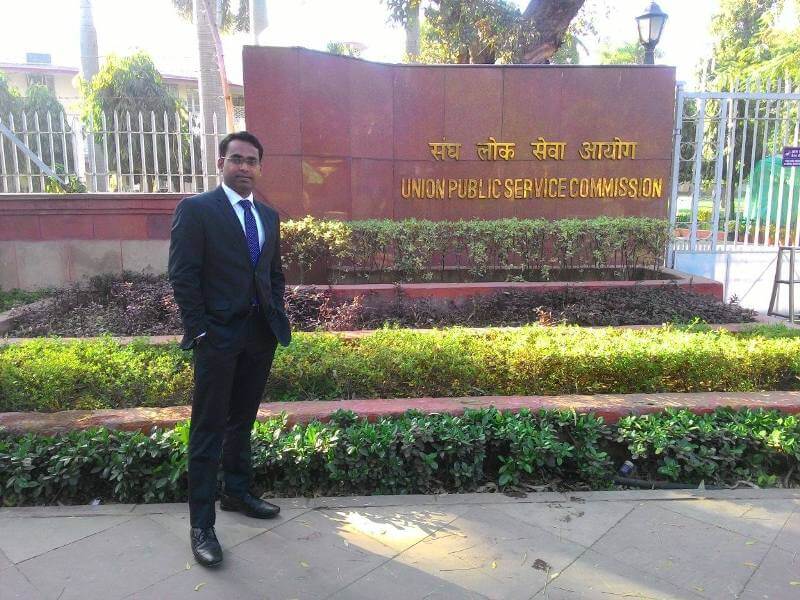
ClearIAS.com: Who was the Chairman of the board you faced?
Smita Nagaraj ma’am
ClearIAS.com: Can you share with our readers your UPSC Interview experience? Our readers would be really happy to hear those questions and replies in the UPSC Topper’s Interview.
I reached Kerala House, New Delhi two days before the interview. It was my first trip to our capital city. The early March weather was pleasant. State Civil Service Academy provides accommodation (and the tasty Kerala style food served by friendly waiters needs special mention) at Kerala House to its adoption batch students and this is very much helpful for candidates. Here I met Deepu, Alex, Jithin, Syam, Vivek, Raghu, Ajmal, Amal, and others. We all had interviews on the same day or consecutive days. We discussed a few possible topics and most importantly, motivated each other.
Alex, Syam and I had interviews in the same session, ie Monday afternoon. So we reached the UPSC office ( Dholpur House, Shahjahan Marg) by 12.30. It was a great feeling to stand in front of the Dholpur House, the hallowed edifice which hosts the climax of this drama called civil service preparation. To relieve stress, we took few selfies and photos. Alex bro was so cool and I was a little nervous.
By 1 pm, Gates were opened before us and we entered the compound after security check. After depositing mobile phones, wallets etc at the entrance, we were led to a hall, where candidates were asked to proceed to one of the few groups of chairs. Each group would go to the same board. We will never know which board is going to interview us until the last moment. There were six candidates in my group. The lone lady wore saree and four out of five gentlemen wore suits. Our certificates were verified there and we got to know the order in which we six would go to the boardroom. I was fourth to go, which meant at least 1.5 hours of waiting.
It was past 2 pm when the interviews began. When the first candidate was called from our group, we got to know that it was Smita Nagaraj madam’s board. I was a little relieved to hear this since she was a new member in UPSC and thus there was no negative feedback available about the board from previous year’s candidates. When I visited the washroom (which I did countless times) I saw the room bearing her name above the large door. I imagined myself entering the room, smiling, wishing them a good afternoon and so on.
Finally, my turn came. Just when I was accompanied by the clerk to the boardroom, tea was served to them and I had to wait outside till the tea break was over. I visualised them discussing my DAF while drinking tea. Chai pe charcha! Then the bell rang and the clerk signalled to me to go inside. Finally, I’m going to do it. The climax of all these years of efforts. “Be calm” I reminded myself.
I entered and wished them a good afternoon. I saw a very gracious lady sitting in the middle – Smita Nagaraj madam. She was flanked by two members each on both sides. She was smiling at me and replied: “Good afternoon Junaid and please have your seat”. I felt very much comfortable. Now this is what happened in the interview: (I don’t remember all my answers clearly. only the crux of the questions and answers is given below.)
- the weavers are not getting their due, most of the money is appropriated by middlemen and all
- The Handloom industry is not market-oriented and sustains mainly on govt subsidies, which breeds corruption as well
- Handloom products can get high value if we rightly brand and market.
ClearIAS.com: Any tips for aspirants going for UPSC Interview?
- Be thorough with current affairs – especially from your State and District. Questions from one’s background (Home state and district, education, job experience etc), Current affairs, optional subjects, hobbies etc will be asked.
- Prepare notes on all areas mentioned in DAF (Detailed Application Form to be submitted before Mains). Questions will be mostly based on the DAF (Detailed application form) which we submit for Mains.
- Think like an administrator and find out some innovative solutions to our common problems – like sanitation and waste disposal, quality of education, women empowerment and crimes against women etc.
- After Mains results are declared, attend as many mock interviews as you can. Carefully evaluate the feedback received and try to implement those feedback in the next mock.
- Download the “interview transcripts” of previous winners, and understand the nature of questions.
Previous Attempts/ Backups/ Others Jobs Qualified (if any)
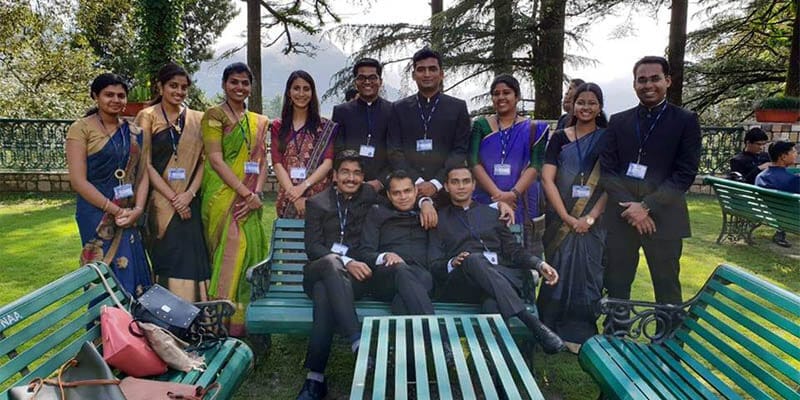
ClearIAS.com: Comment on your previous attempts on UPSC Civil Services Exam, if any? What have you learned from the mistakes/failures?
In 2015, I attempted prelims with minimal preparation. When I reached about 50 answers, I stopped attempting further. I thought I would clear it with that many attempts. This was a blunder, and I realized that I needed expert guidance on Prelims strategy.
In 2016, I failed in mains because I didn’t take any module wise test series and got my answer sheets evaluated.
ClearIAS.com: What was your backup plan in case you didn’t qualify?
I really didn’t know. I wanted to wait till the results before even start thinking about a backup plan.
ClearIAS.com: Did you write/clear any other exams (like Bank exams/State PSCs/ Private Jobs) during the preparation period or before:
In 2013, I wrote the Postal Assistant test and got selected for appointment. But I did not join.
[click_to_tweet tweet=”After starting full-time preparation, I took a vow that I’ll not appear for any other competitive examination. My aim was to focus solely on civil service examination.” quote=”After starting full-time preparation, I took a vow that I’ll not appear for any other competitive examination. My aim was to focus solely on civil service examination.” theme=”style2″]
More on Work Experience
ClearIAS.com: Details of your organisation, name of the post and the duration of experience:
IBM. Associate System Engineer for two years (2014 Jan to 2015 Dec)
ClearIAS.com: Did you leave the job to prepare?
Yes
ClearIAS.com: What is your advice to working professionals who’re preparing for IAS exam simultaneously?
I’m not in a position to do so since I had resigned my job to prepare. However, I just want to tell them that there are many people who have cleared the exam while working. Hence give your best and be ready to walk the extra mile.
PS: – You can read more about Muhammed Junaid’s strategies and guidance in his blog.
Marks – Prelims, Mains, and Interview
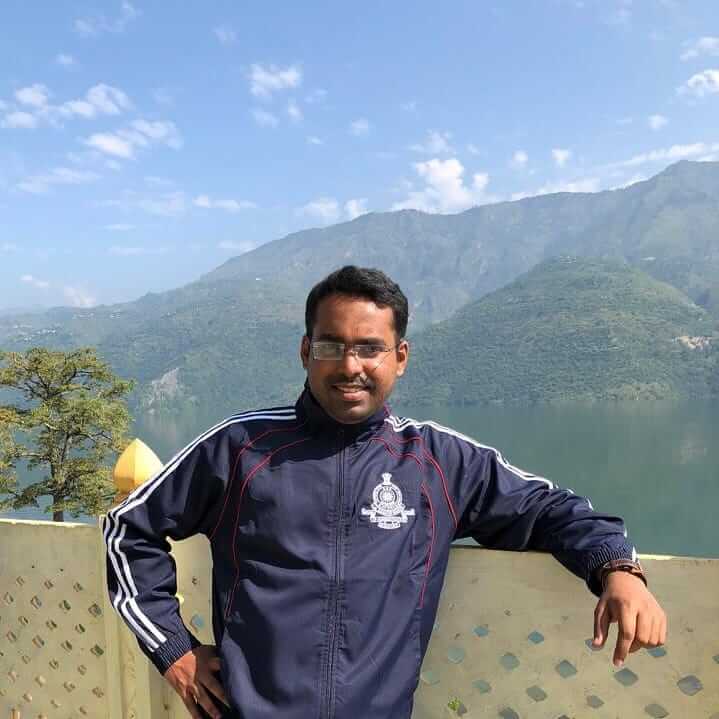
Preliminary Exam (Just for Qualification)
- General Studies Paper 1: (Out of 200) 132 in 2016, 114 in 2017 (Approx 80 attempts in both year)
- General Studies Paper 2: (Out of 200) 134 in 2016, 120 in 2017
Mains:
- Essay (Out of 250): 155
- GS1 (Out of 250): 104
- GS2 (Out of 250): 100
- GS3 (Out of 250): 113
- GS4 (Out of 250): 90
- Optional Paper 1 (Out of 250): 138
- Optional Paper 2 (Out of 250): 137
- Written Total (Out of 1750): 837
I have attempted almost all answers, except in GS3 where I left one question.
Interview (Out of 275)
- Marks for Personality Test: 198
Final Marks (Out of 2025) – Mains + Interview:
1035
ClearIAS.com: We like to express our heartiest congratulations once again for this grand success. We are happy that you chose ClearIAS.com to share your happiness on this special occasion. ClearIAS.com sincerely thank you, on behalf of our readers and ourselves, for the spirit and benevolence to find time to write answers to our detailed questionnaire. Wishing you, all the very best in career and life.






Excellent, we are proud he was part of SSF wisdom homes hostel
sir good morning
sir ias ke leya kon se book use kare